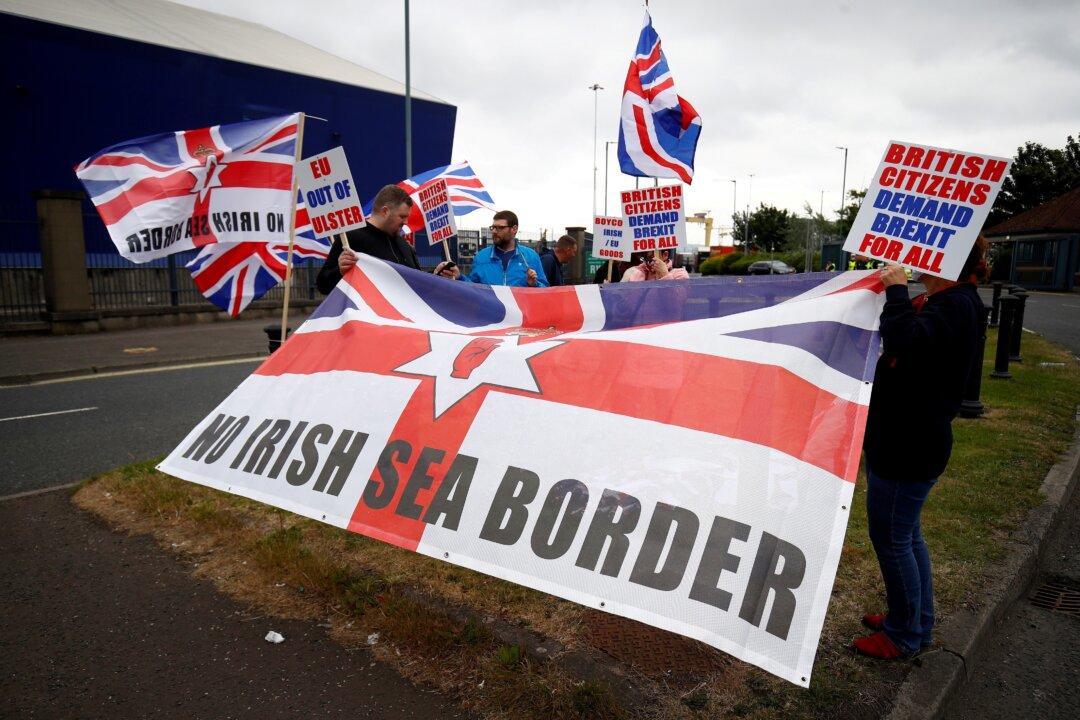Prime Minister Boris Johnson’s former chief negotiator on Brexit has blamed the political “weakness” of Britain’s position in relation to the European Union for the problems with the Northern Ireland Protocol.
Lord Frost negotiated the Withdrawal Agreement with the 27-nation bloc in 2019 but resigned as Brexit minister in December 2021 saying he had “concerns about the current direction of travel” under Johnson.





